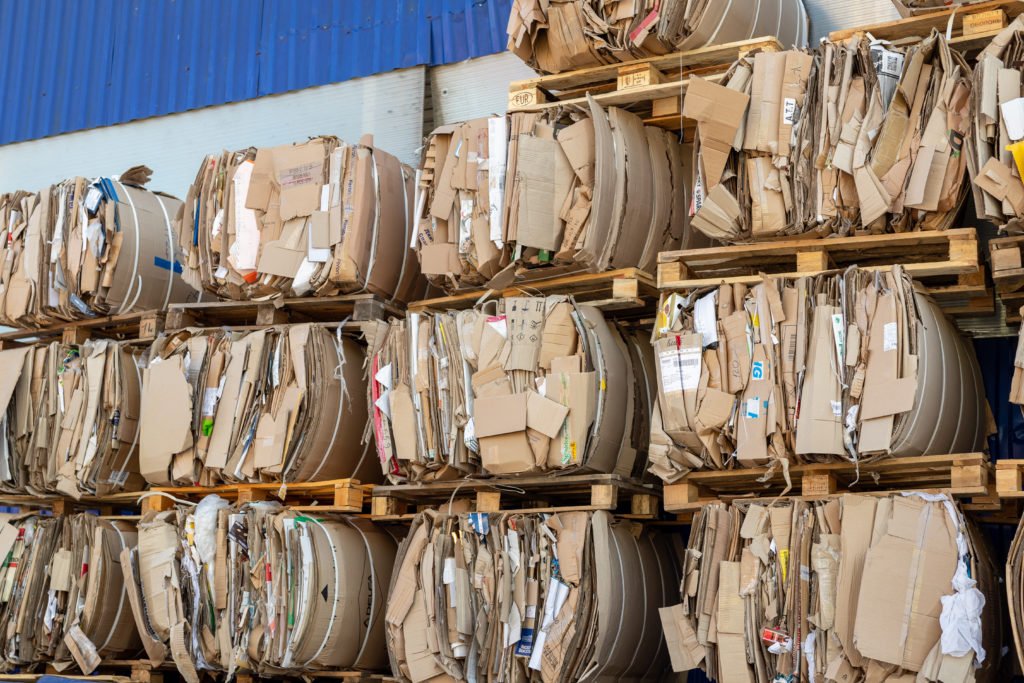The programme will come only a few hours after a crucial industry, government and WRAP meeting today to discuss potential codes of practice and other issues surrounding the export of recyclables. This meeting is also expected to discuss the new quality assurance scheme developed by Britain's waste management industry for materials recycling facilities.
The Metro
The Metro newspaper bases its article on comments from London Green Party member Darren Johnson. He refers to film that is expected to be shown tonight on the BBC1 programme Real Story at 7.30pm of commingled material from the UK with varying levels of contamination sent to Indonesia. A summary of the Real Story findings is now available at www.bbc.co.uk
Mr Johnson said “the shipment was the tip of an iceberg. I'm very concerned our waste is turning up on the other side of the world.”
 Real Story: presenter Fiona Bruce will report on exports tonight |
The newspaper report describes how the BBC1 investigation has found that “paper, cardboard, plastic and cans put in recycling bins by green-minded Britons is polluting the developing world.”
However, the Metro report fails to inform readers of the huge demand for recovered paper and plastics from mills in India, China and elsewhere in South East Asia. These countries usually see the UK like a 'b;read basket' containing essential recovered materials for recycling.
The Guardian
There has been long running controversy over the export of mixed recyclables which was originally taken up by the Guardian newspaper's environment editor John Vidal. His work is thought to have attracted the attention of the Real Story researchers. Mr Vidal reported on the export of materials, primarily plastics and recovered paper and how these materials were ending up in some contaminated loads.
In April this year Mr Vidal also highlighted the views of many exporters in the form of materials exporter, Grosvenor Waste Management.
Mr Vidal wrote: “Much of the glass, paper, cardboard and plastic put out for collection each week for recycling will have to be dumped in landfills unless the government makes clear what can be exported free to developing countries, the head of Britain's largest waste recycling operation has warned. In an escalating row between the Environment Agency and the recycling industry, John Viviani, head of Grosvenor Waste, has accused the government of frustrating exports by insisting on over-zealous environmental standards.”
Commingled material
The Guardian work has been the main feature of growing debate over the export of commingled material from the UK over the past 12 months. Much of this centres on mixed paper which can be exported legally as an acceptable grade and whether it contains other materials as well as contaminants.
The mills in China and India, for example, are often quite happy to take in the mixed material even if this breaches the letter of the law because they can easily separate the paper and plastics and can also burn any residues in their power plants. However, there are concerns, and the BBC is expected to show this, that because the waste materials are not sufficiently sorted in the UK, waste such as used nappies, is ending up abroad posing health threats to workers and damage to the environment.
Commingled exports also clash with the Transfrontier Shipment Regulations which permit the export of materials but not waste. They also restrict exports to only one type of material – paper cannot be exported, for example, in the same container as plastics. However, the Environment Agency has been slow to enforce export standards and even now there is a level of confusion as to what the Agency permits.
One expert told letsrecycle.com that there was a big need for overseas mills to realise that they should purchase graded material rather than commingled.
Waste management industry
The waste management industry has just announced that it is to set up a quality assurance scheme for materials recycling facilities. This will be run by the Environmental Services Association (ESA).
The scheme, said ESA policy director Mike Walker, “aims to increase confidence in the continued export of materials for recycling.”
Under the scheme, the operators of materials recycling facilities would register their sites and adopt a set of operating principles which would be monitored by a scheme-appointed inspection body.
Mr Walker said: “By developing this scheme, the industry is taking a positive step… It will also give local authorities additional confidence and comfort.”
WRAP
A meeting facilitated by the Waste and Resources Action Programme is taking place in London today on the topic of the export of recyclables. It will bring together the ESA, the Environment Agency and the recovered paper sector.
The new ESA quality assurance scheme is expected to be discussed. A central theme will be the relationship between the scheme and existing paper grades as well as the Environment Agency view of the situation.
WRAP is also poised to respond to tonight's television programme which will come only three weeks before the launch of the annual WRAP Christmas recycling campaign. It is not expected that the campaign will be stopped or amended to encourage householders to keep contaminants out of recycling bins.











Subscribe for free